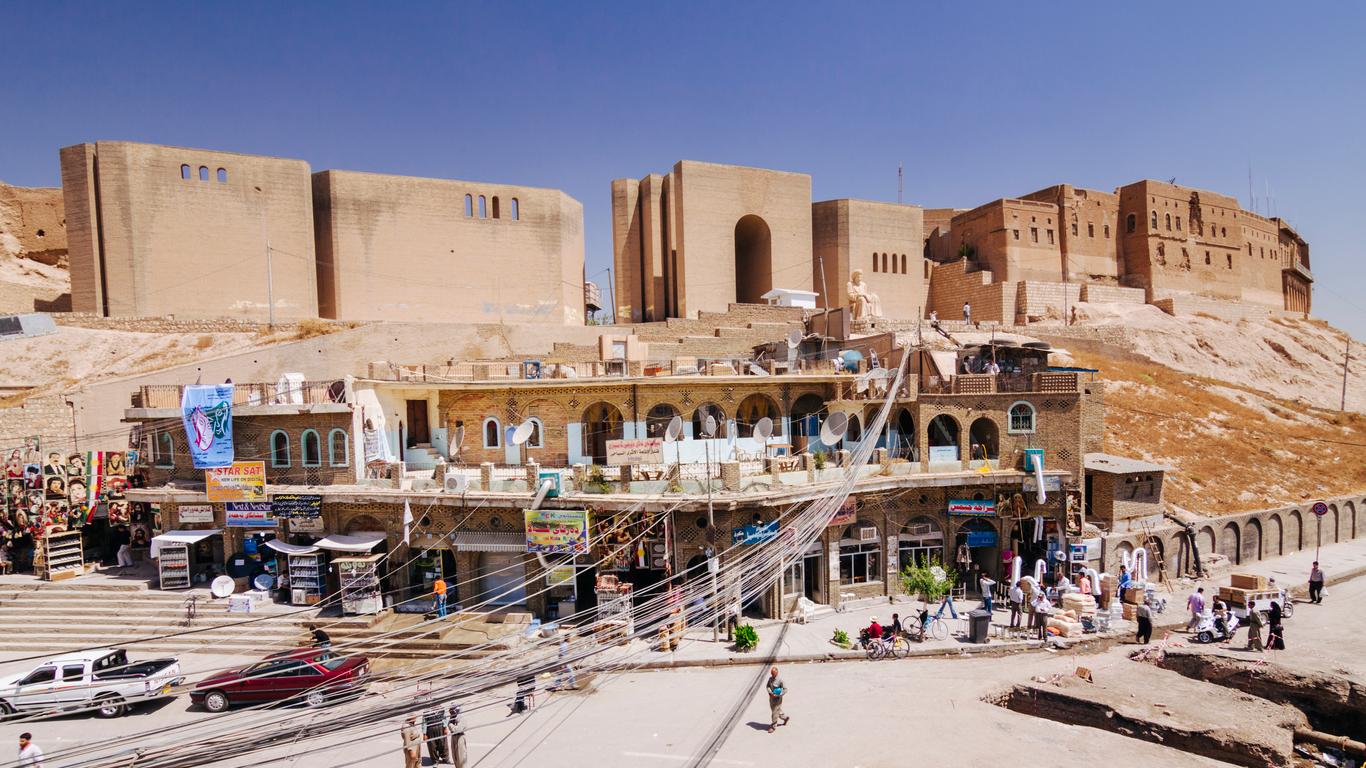Serving as the capital of Iraq’s Kurdistan Region, Erbil sprawls across a fertile plain between the Greater Zab and Lesser Zab rivers. It’s a rapidly growing commercial hub that’s centred around an ancient Citadel where the Assyrians, Babylonians, Persians and Greeks have all left their mark. Engaging museums detail the region’s storied history while the city’s lively souk offers products from across the Middle East.
Things to do in Erbil
Spend a day exploring the narrow streets of the Erbil Citadel, an ovoid-shaped fortification that’s dominated by a wall of 19th-century facades. It’s here that you’ll find the Kurdish Textile Museum, which boasts an impressive collection of antique rugs, nomadic carrying sacks and contemporary Kurdish designs. The on-site gift shop is the ideal place to pick up souvenirs, ranging from jewellery to locally-woven carpets.
You can delve into the history of the city at the Erbil Civilization Museum, with its collection including Stone Age archaeological finds and objects dating back to the Assyrian era. Within the museum grounds lies the Mound of Qalich Agha, an excavation site where tools from the Halaf, Ubaid and Uruk periods have been uncovered.
To the west of the Erbil Citadel sprawls Sami Abdul Rahman Park, a former military base of Saddam Hussein’s that’s been transformed into a recreational hub. Stretch your legs on the walking trails that hug its two lakes and explore the fragrant rose garden before paying your respects at the Martyrs Monument.
Getting around Erbil
Erbil International Airport is the main gateway to the city and around 15 minutes’ drive from the centre. Long-distance buses connect Erbil to destinations across Iraq, as well as to neighbouring Turkey and Iran. Local taxis and buses are the main means of getting around the city.





